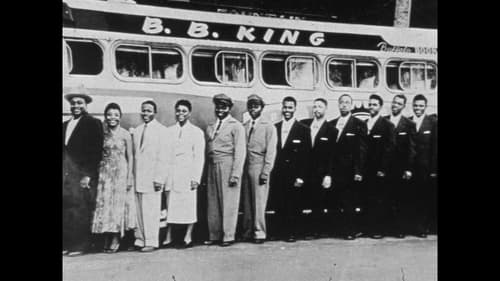
Executive Producer
Blues legends B.B. King and Rufus Thomas, plus Evelyn Young, Gatemouth Moore, Fred Ford, Honeymoon Garner, Booker T. Laury, and others play jam sessions & tell stories about Memphis' Beale Street. Filmed in Memphis in the late 80's, the award-winning documentary has been lovingly remastered and restored from the original 16mm film and audio tape. A personal look at a neighborhood where the music lasted "all day and all night". It's a must-see for any music fan.

Director
Meet Tom Johnson and his praying pigs. "Been fooling with them hogs for 35 long years," Johnson says in the film as he rocks on the porch of his modest residence near Bentonia, Mississippi. "It's just an idea that I took up. It's a play thing. And it put me into something that I didn't get out of too easy and so soon." The pigs, taught to stand beside their brimming slop trough with heads bowed while Johnson prayed over their food, dug in with gusto when he finally released them to eat. Johnson died in 1980, but the four minute film is a lasting reminder of his special pig training talents.

Editor
16mm color documentary based on fieldwork William Ferris conducted with gospel singer and folk healer Fannie Bell Chapman and her family in Centreville, Mississippi in the early 1970s. Footage includes Chapman and her daughters singing and praying during church services and at home, a healing service at the Chapman home, and Chapman "speaking in tongues" after healing. Members of the Chapman family also discuss the development of their faith, the call to heal and sing the Christian gospel, and their lives singing together.

Director
16mm color documentary based on fieldwork William Ferris conducted with gospel singer and folk healer Fannie Bell Chapman and her family in Centreville, Mississippi in the early 1970s. Footage includes Chapman and her daughters singing and praying during church services and at home, a healing service at the Chapman home, and Chapman "speaking in tongues" after healing. Members of the Chapman family also discuss the development of their faith, the call to heal and sing the Christian gospel, and their lives singing together.

Director
A 16mm documentary based on fieldwork that William Ferris conducted with African American folk artists throughout Mississippi. Footage includes Richard Foster at the "dog trot" house he grew up in, basket maker Leon "Peck" Clark, quilter Amanda Gordon, floral gardener Esther Criss, cane fife maker Otha Turner, painter and cane maker Lester Willis, and sculptor James "Son" Thomas. The artists discuss their informal training, artisic motivation and vision, and the value they attach to their art while working on their crafts.

Editor
Bill Ferris writes…”This film was originally edited by Josette Ferris and me from super-8 and 16mm footage that I shot in 1967 and 1968 in Lorman, Leland, and Clarksdale, Mississippi." A film documenting traditional blues styles in Mississippi.

Editor
A compelling and award-winning portrait of Othar Turner, his music and their role in the Gravel Springs community. The film not only demonstrates how to make a cane fife, but also gets to the heart of both Turner and his fife and drum music as he's shown performing at an annual Fourth of July picnic. Quick cuts between dancing band members and the rhythmic movements of Turner's family going about their daily chores capture the mounting excitement and provide a rare, revealing glimpse of the work and play that characterize this traditional rural Mississippi society.

Director
A compelling and award-winning portrait of Othar Turner, his music and their role in the Gravel Springs community. The film not only demonstrates how to make a cane fife, but also gets to the heart of both Turner and his fife and drum music as he's shown performing at an annual Fourth of July picnic. Quick cuts between dancing band members and the rhythmic movements of Turner's family going about their daily chores capture the mounting excitement and provide a rare, revealing glimpse of the work and play that characterize this traditional rural Mississippi society.







